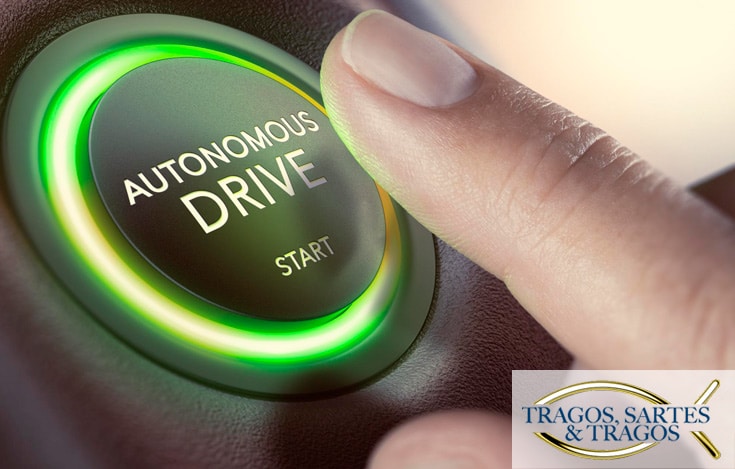What should I do if I’ve been in a driverless car accident?
If you are involved in a car accident caused by another party’s negligence, you’re typically entitled to compensation or other relief.
But what if a self-driving vehicle was at fault?
This question may sound like it’s based more on science fiction than reality, but driverless car technology is becoming increasingly more advanced and testing has already begun in certain parts of the country. It’s only a matter of time before they’re commonplace in the Tampa area, too.
So let’s take a look at what Florida law says about how to take legal action (and who to take action against) in such a scenario.

Was a human driver in the vehicle?
In most cases, a human driver will guide an autonomous vehicle when it needs help. For instance, that person could manually change lanes on a highway or make a turn at a red light if the vehicle doesn’t know that it can do so.
If a human was at the controls of an autonomous vehicle when an accident took place, they could be held liable for the crash.
However, this is only true if it can be proven that the human operator was negligent. Negligence may include looking at their phone or eating when the vehicle signaled that human intervention was needed. In the event that human negligence contributed to the accident, you may be able to take legal action against that person.
Manufacturers of autonomous vehicles could share liability
An autonomous vehicle manufacturer could also be held liable for an accident if one of its vehicles is at fault. This may be true whether a human driver was negligent or not.
For example, let’s say that a software glitch caused a driverless vehicle to run a stop sign or not stop at a red light, and this failure resulted in a T-bone accident. The automaker would likely be responsible for the faulty or defective software, even if they didn’t know there was an issue.
Other parties could be held liable
If a software issue caused an autonomous vehicle to get into an accident with another person or vehicle, the company that made the software could be liable in a personal injury case, too. As with the automaker itself, the software provider also owes the public a duty of care to produce a safe product that works as intended.
The same is true of any other company that provides parts for a vehicle that is involved in a car accident. If the brakes failed, the brake manufacturer would likely be liable for damages.
Was the vehicle tampered with?
When looking into a self-driving car accident, investigators may look to see if the vehicle was tampered with in any way. In the event that tampering did take place, it could absolve another party of liability.
For example, if a driver disabled a safety feature, the company that made that component likely won’t be held negligent for allowing the accident to happen. Depending on the level of a driver’s negligence, the automaker itself may not be liable for damages.
If you were involved in a car accident, the first thing you should do is seek medical treatment. Then, gather as much evidence as you can to establish that you weren’t at fault for causing the crash. The evidence can then be taken to an attorney who may help you obtain compensation for damages from the individual or parties responsible.
Our experts at Tragos, Sartes & Tragos know how to handle complex cases such as these. Reach out today for a free consultation and let show you how we can win you the compensation you deserve.